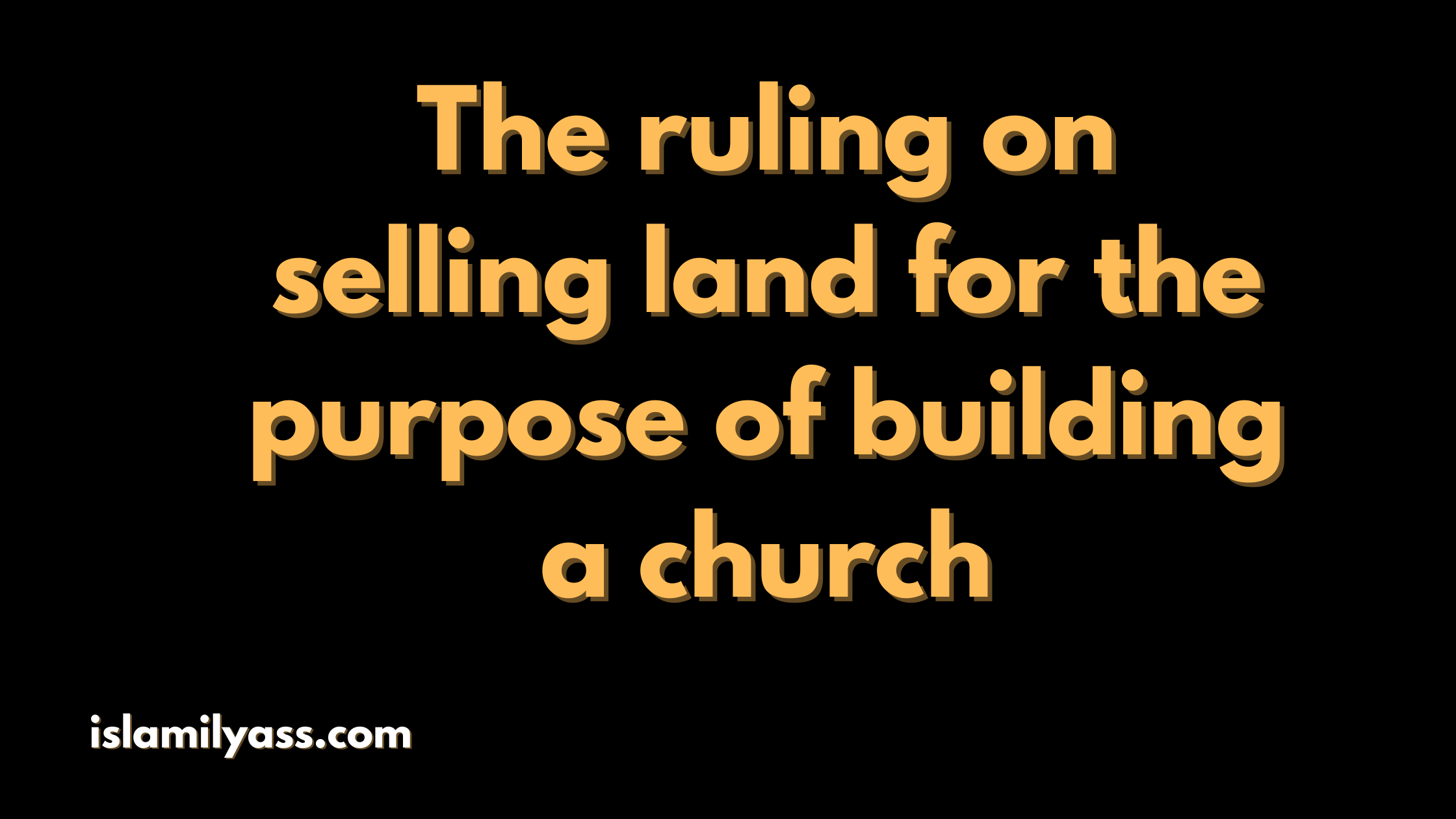The ruling on selling land for the purpose of building a church.
Question:
I want to sell a piece of land to a Christian, and he informed me that he intends to build a church on it. I heard a scholar on television discussing this matter, and he explained that it is permissible according to the Hanafi school of thought, but impermissible according to the other three schools. It was also mentioned that a Muslim has the right to follow any legitimate opinion. I am inclined to proceed with the sale, considering it is permissible in the Hanafi school. My question is: Is it truly permissible according to the Hanafi school of thought, and did the Hanafi school actually allow it?
Answer:
It is not permissible for a Muslim to sell land or lease it to someone who intends to use it for a forbidden purpose.This is since implies take the administering of their closes. A implies driving to sin is wicked, and a implies driving to compliance is an act of acquiescence. For this reason, it is prohibited to sell weapons during times of civil strife, or to sell grapes to someone who will use them to make wine. Likewise, it is prohibited to sell land to a non-Muslim if he intends to build a church on it, as this would constitute aiding in sin. This applies whether the forbidden purpose is explicitly stipulated in the contract or indicated by clear evidence.
It is stated in the Fiqh Encyclopedia: “The majority of scholars have ruled that it is prohibited for a Muslim to sell land or a house that will be used to establish a church.”
Furthermore, in Al-Muheet Al-Burhani from the Hanafi school: “If a non-Muslim rents a house for residence, and then later decides to turn it into a church or synagogue, this is not permissible. If, from the outset, the rental was for the purpose of making it a church or synagogue, it is impermissible.”
What has been narrated from Imam Abu Hanifa, may Allah have mercy on him, regarding the permissibility of this, applies to non-Muslim lands or areas outside the Muslim cities and villages.
In Durar Al-Hukkam from the Hanafi sources, it is reported that Imam Abu Hanifa allowed such transactions in rural areas, but it was clarified that this refers to the rural areas around Kufa, where the majority of the inhabitants were non-Muslims. However, in rural areas within Muslim lands, where the symbols of Islam are prominent, this is not allowed. This is the correct view.
Based on the above, if a non-Muslim explicitly states his forbidden intent or it is known through evidence that he intends to use the land to build a church in one of the Muslim lands, then it is impermissible to sell the land to him by consensus of the scholars.
Moreover, it is not permissible for a Muslim to follow his desires or seek out the easiest rulings from different schools of thought. Some scholars, such as Abu Ishaq Al-Marwazi and Ibn Al-Qayyim, considered such a person to be sinful. Scholars have criticized those who adopt this approach, describing it as following one’s whims and desires. The prevailing view of the scholar is believed to be the ruling of Allah, and to leave it for another opinion solely for ease and convenience is to belittle the religion. Imam Al-Shatibi, may Allah have mercy on him, said: “One should not pick and choose between different rulings, for doing so nullifies the sense of obligation. If we allow laypeople to choose between the rulings of different scholars, they will inevitably follow their whims and desires.”
And Allah knows best.

